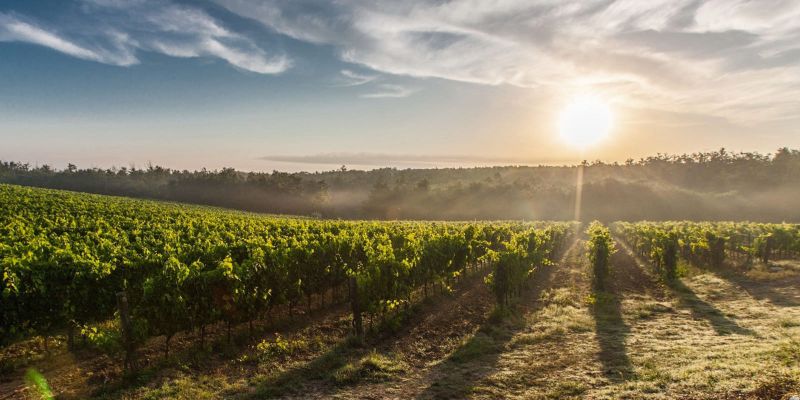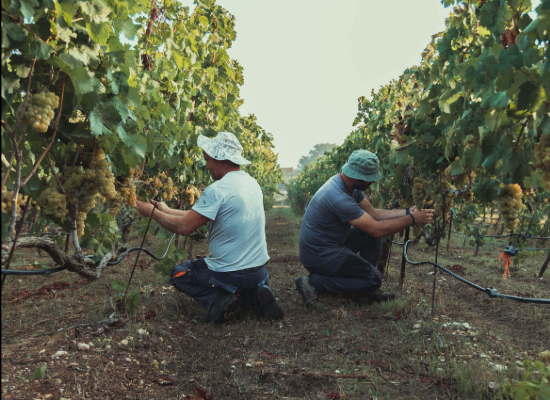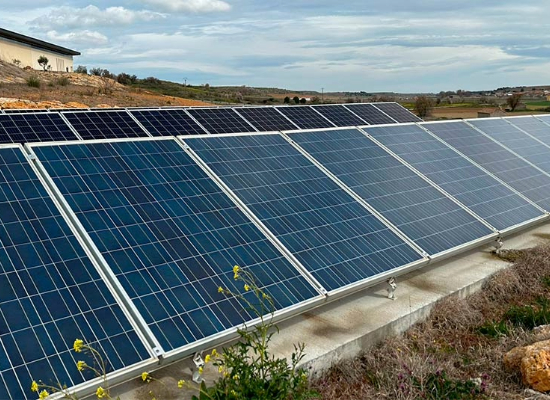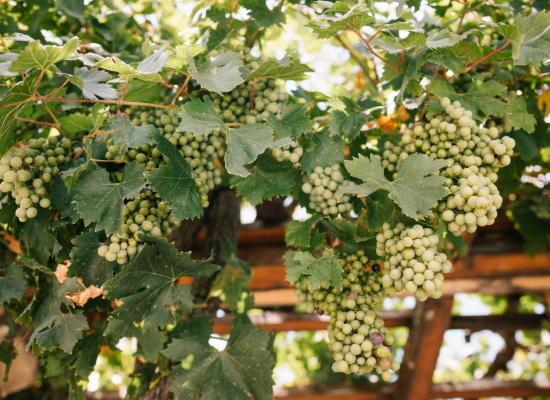Educating Sommeliers Worldwide.
By Beverage Trade Network

As climate change continues to negatively impact the ecosystem, vineyards around the world are also facing the consequences. Factors like rising temperatures, unpredictable rainfall patterns, and extreme weather events are making it hard for vineyards to opt for traditional farming practices. Thus, vineyards are reinforcing different strategies to adapt to the changing climate conditions and ensure the long-term sustainability of their businesses. Here are the different ways in which some of the wine producers who won gold medals at the 2024 Sommeliers Choice Awards show their commitment to environmentally friendly viticulture.

Image Title and Credits: Grape cultivation at The Lyrarakis Winery
Climate change has caused some varietals to become endangered as they have become incapable of surviving in an environment suboptimal for them. The Lyrarakis Winery has dedicated itself to reviving dying grape varietals in Greece’s Crete. The Greek wine family has brought back extinct varietals like Dafni, Plyto and Melissaki to date by planting them in their vineyards. The wine company follows regenerative farming practices, like refraining from plowing the soil, which helps in reviving the different grape varietals. Lyrarakis Winery continues to explore more such grapes that they can restore.
Also read: A Deep Dive Into Vintage Variation And Navigating Inconsistent Years
Depleting resources is a major issue of climate change; thus, it is important to use the available commodities like water and soil thoughtfully. Legado de Orniz, a family winery in Spain that has passed down its wine-making practices for four generations, understands the importance of conservation for the future. For that reason, it has built its winery with sloping roofs, allowing for rainwater harvesting. The whole winery runs on photovoltaic energy, which is electricity converted from sunlight. These initiatives reduce the winery’s environmental footprint.

Image Title and Credits: Sloping roofs with solar panels at Legado de Orniz's winery
Another way in which vineyards are alleviating the adverse effects of climate change on the Earth is by minimizing their waste production, which in turn reduces their carbon footprint. Zilzie Wines, for example, is big on reusing and recycling materials so that it can cut down on waste. The American winery even filters its wastewater so that it can be reused. Likewise, the O'Neill Winery & Distillery also has a wastewater management system referred to as the BioFiltro Wastewater Solutions, which can filter 80 million gallons of water per year.
Realizing the exacerbating effects of climate change on natural resources, many vineyards are focused on harvesting a limited amount of grapes so that each vine can get sufficient resources to grow well. Vineyards that employ this quality-over-quantity method include Beni di Batasiolo and Venturini Baldini, which cultivates eight tons of grapes per hectare. This approach aids in the long-term sustainability of the vineyard and produces wines of exceptional quality.
Also read: Stock This Sparkling Red Wine: Marchese Manodori

Image Title and Credits: Grapes hanging from a tree (photo by Marita Mones from Unsplash)
Vineyards also mitigate climate change by strategically choosing the right microclimate. By carefully selecting regions with favorable microclimatic conditions, vineyards can create more resilient and sustainable production systems. For instance, the Italian wine brand Piera 1899 chose the Friuli Grave region to set up its vineyard. The location allows its vineyard to have mountains on one side and the Adriatic Sea on the other, thus creating an ideal environment for the vines.
[[relatedPurchasesItems-61]]
LIVE, or Low Input Viticulture and Enology is a non-profit organization whose main goal is to promote sustainable viticulture in the Northwest region of the USA. For this, LIVE has established certain rules, such as emitting less greenhouse gas and planting cover crops, which not only help vineyards cultivate a healthy amount of grapes but also have a better impact on the environment. Among the vineyards that have earned the LIVE certification is Adelsheim Vineyard. It uses solar energy, installs movement sensors to turn on lights only when required, and reduces carbon dioxide by opting for lightweight wine bottles.
By prioritizing sustainability, these wine companies are not only ensuring their growth but also contributing to a healthier planet for future generations. As climate challenges intensify, the strategies employed by these vineyards will prove to be more valuable in the global wine industry.
Header image sourced from Piera 1899
Related links
Navigating Organic Wine Labeling: A Guide for Sommeliers and Wine Directors
Strategic Integration of Sustainable Wines into Restaurant Programs by Savvy Sommeliers